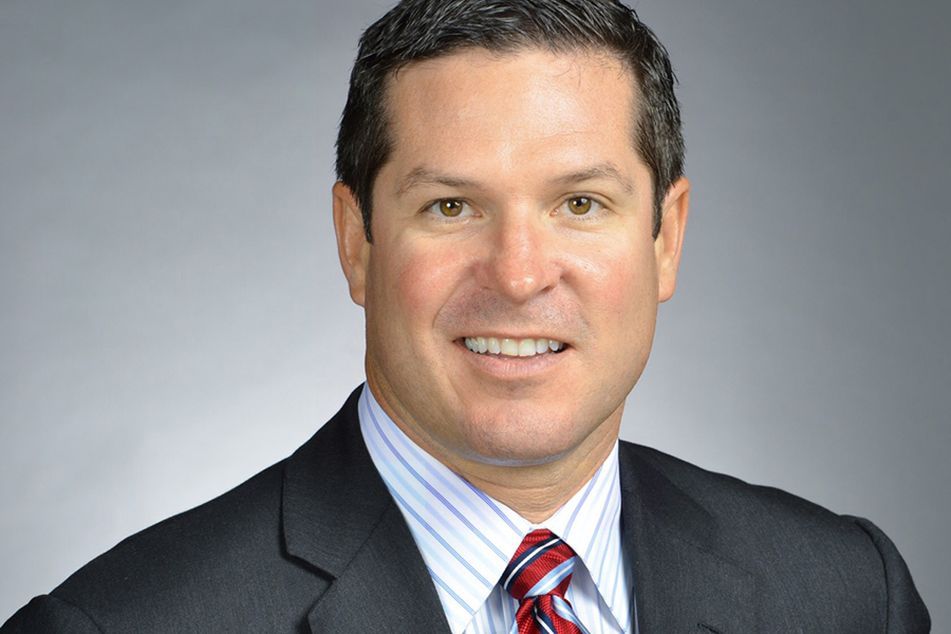Former dissident candidate for Finra board now runs with board imprimatur
 Brian Kovack
Brian Kovack
Three years ago, Brian Kovack won an upset bid as a dissident candidate for a Finra board seat.
Three years ago, Brian Kovack won an upset bid as a dissident candidate for a Finra board seat. He’s running for re-election this year, but this time as part of the establishment.
Mr. Kovack is seeking another three-year term representing mid-size broker-dealers in the Aug. 28 election. He ran in 2015 as an outsider, backed by the Financial Services Institute, to make the Financial Industry Regulatory Authority Inc. more responsive to member firms.
He points to an upgrade in the Finra exam process that has made it more efficient and less time consuming as an advance during his board tenure.
“I’ve been very vocal, along with others, and clearly we’ve seen improvements,” said Mr. Kovack, president of Kovack Securities Inc.
He says he has opened lines of communication between mid-size firms and the board and that his work has led to the board nominating him for re-election.
“That support is recognition of my accomplishments of the past and initiatives for the future,” Mr. Kovack said.
But the tables have turned on Mr. Kovack, as he has drawn his own insurgent opponent, Jay Lanstein, chief executive of Cantella & Co. Inc., who was nominated by petition.
Mr. Lanstein asserts that mid-size firms — those with 151 to 500 registered representatives — are caught in the middle when it comes to regulation. They’re seen as “big boys” who can take care of themselves on compliance, even though they’re much smaller than wirehouses.
“We’re’ caught in a no man’s land of having an expectation of resources and systems that are really not in parity with the size [of the firm] and the risk it poses to the investing public and other firms,” Mr. Lanstein said.
Mr. Lanstein doesn’t know Mr. Kovack but likes his chances in the race, despite his opponent’s board endorsement.
“It may help me not to be embraced by Finra,” Mr. Lanstein said. “I’m with whoever they’re not with is what some people would say.”
The voting for Finra board will take place among Finra’s approximately 3,712 member firms via telephone, postal mail and online over the next several weeks. Firms also can vote in person at the Aug. 28 board meeting.
In addition to the contest for the mid-size firm seat, four candidates are vying for a small-firm seat. Timothy C. Scheve, president and chief executive of Janney Montgomery Scott, is running unopposed for a large-firm seat.
Among those competing for the small-firm position, there is a consistent theme of Finra overlooking regulatory burdens endured by small firms that have 150 or fewer registered representatives.
“I really think small firms need someone who’s very vocal and persistent in working with Finra,” said candidate Carrie Wisniewski, president of Bridge Capital Associates. “They’re just killing small firms. The small firms are the bread-and-butter of the industry, but we’re not getting the respect we deserve.”
Another candidate, Paige Pierce, senior vice president of Larimer Capital Corp., said that Finra board members often don’t have an understanding of the challenges facing small firms.
“We’re struggling to see how we’re ever considered by them,” Ms. Pierce said. “These are good people trying to do a good job, but there’s no reference point about what it’s like to run a small business.”
Small-firm struggles are starting to be addressed by the Finra 360 self-examination initiative, according to Jim Webb, another board candidate and chief executive of Cape Securities Inc. He said that this is a “crucial election year” because changes emanating from Finra 360 are being put in place.
“I want to be part of that solution process,” Mr. Webb said. “When someone is reaching out to you, it’s important to reach back and help provide solutions.”
The fourth small-firm candidate, Michelle Thomas, chief compliance officer at WBB Securities, could not be reached for comment.
As part of Finra 360, the board has taken steps to make itself and Finra operations more transparent, after years of criticism for being opaque.
But Mr. Lanstein said that firms continue to feel “disenfranchised” when it comes to Finra’s finances.
“There’s a much further way to go,” he said. “Firms have a right to know how that money is being spent and how those decisions are being made.”
Learn more about reprints and licensing for this article.








